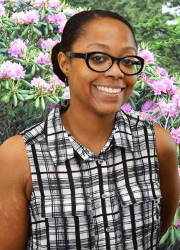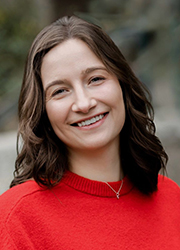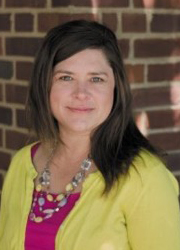ABOUT US
Optimal Identification represents a fusion of several strands of prior work on student identification done by several team members. This work includes:
- development of a mathematical framework and software tools for modeling and calculating identification system performance
- alternative norm or comparison groups, including local norms and building norms
- identification-to-service alignment
- access for underrepresented gifted students (e.g., low-income, students of color, rural).
Taken together, these approaches illustrate how it is possible to:
- fundamentally improve the gifted identification process
- minimize assessment costs
- improve alignment between identification and services
- dramatically improving sensitivity
- reduce disproportionality across race and income categories
We refer to this concept as “Optimal Identification” because it can be shown mathematically that no other two-stage identification process achieves higher performance or cost efficiency.
See our current team's work:
Stambaugh, T., Lee, L. E., Makel, M., Peters, S., & Johnson, K. R. (2024). How Does Your Identification System Measure Up? A Guide to Applying the CASA Criteria to Gifted and Talented Identification Systems. Gifted Child Today, 47(4), 246–259. https://doi.org/10.1177/10762175241263983
Peters, S. J., Makel, M. C., Lee, L. E., Stambaugh, T., McBee, M. T., McCoach, D. B., & Johnson, K. R. (2024). What Makes for an Effective Gifted and Talented Screener? Gifted Child Today, 47(2), 98-107. https://doi.org/10.1177/10762175231222301
Makel, M. C., Peters, S. J., Lee, L. E., Stambaugh, T., McBee, M. T., McCoach, D. B., & Johnson, K. R. (2024). Effective Identification Through Multiple Criteria. Gifted Child Today, 47(2), 108-118. https://doi.org/10.1177/10762175231222300
Peters, S. J., Stambaugh, T., Makel, M. C., Lee, L. E., McBee, M. T., McCoach, D. B., & Johnson, K. R. (2023). The CASA Criteria for evaluating gifted and talented identification systems: Cost, alignment, sensitivity, and access. Gifted Child Quarterly, 67(2), 137–150. https://doi.org/10.1177/00169862221124887 (see preprint here)
Lee, L. E., & Peters, S. J. (2022). Universal screening: A process to promote equity. In S. Johnsen, & J. VanTassel-Baska (Eds.), Handbook on Assessments for Gifted Learners. Prufrock Press.
See prior work:
McBee, M. T., Peters, S. J., & Waterman, C. (2014). Combining scores in multiple-criteria assessment systems: The impact of combination rule. Gifted Child Quarterly, 58(1), 69–89. https://doi.org/10.1177/0016986213513794
McBee, M. T., Peters, S. J., & Miller, E. M. (2016). The impact of the nomination stage on gifted program identification: A comprehensive psychometric analysis. Gifted Child Quarterly, 60(4), 258–278. https://doi.org/10.1177/0016986216656256
Peters, S. J., Gentry, M., Whiting, G. W., & McBee, M. T. (2019). Who Gets Served in Gifted Education? Demographic representation and a call for action. Gifted Child Quarterly, 63(4), 273–287. https://doi.org/10.1177/0016986219833738
Peters, S. J., Makel, M. C., & Rambo-Hernandez, K. (2021). Local norms for gifted and talented student identification: Everything you need to know. Gifted Child Today, 44(2), 93–104. https://doi.org/10.1177/1076217520985181
Peters, S. J., Matthews, M. S., McBee, M. T., & McCoach, D. B. (2014). Beyond gifted education: Designing and implementing advanced academic programs. Prufrock Press.
Peters, S., Rambo-Hernandez, K.E., Makel, M., Matthews, M., & Plucker, J., (2018). The effect of local norms on racial and ethnic representation in gifted education. AERA Open, 5(2), 1-18. https://files.eric.ed.gov/fulltext/EJ1220745.pdf
Stambaugh, T., & Olszewski-Kubilius, P. (2020). Unlocking potential: Identifying and serving gifted students from low-income households. Routledge.
Lee, L. E., Rinn, A. N., & Rambo-Hernandez, K. E. (2024). What Happens After Nomination? Evaluating the Probability of Gifted Identification With the Torrance Test of Creative Thinking. Gifted Child Quarterly, 68(2), 119-136. https://doi.org/10.1177/00169862231222886
MEET THE OPTIMAL ID TEAM
This work was supported by a grant from the U.S. Department of Education (award number S206A200007 – 21) as part of the Jacob K. Javits Gifted and Talented Students Education Program. The contributors to this site include Kiana Johnson, Lindsay Lee, Matt Makel, Matthew McBee, Betsy McCoach, Scott Peters, & Tamra Stambaugh.






